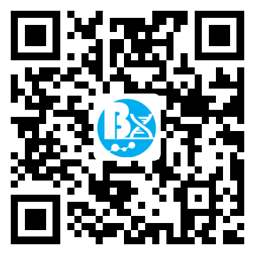Cardiac stem cell therapy is expected to win FDA approval sooner than most people expected. In the past, the proportion of stem cell therapy approved by the FDA was relatively small, but in the past year, the FDA's attitude towards stem cell therapy has changed a lot, and the FDA is looking for more reasonable approval.
Last year, the United States passed the 21st Century Cures Act, which legally promotes the development and approval of cell therapy in the United States for the next 10 years or more. In addition, Trump's new FDA commissioner, Scott Gottlieb, has consistently advocated lowering the standards for drug and device approvals, and he said in a recent speech that the FDA is currently taking steps to modernize the FDA's regulatory approach to cell and gene therapy. “In the future, more emphasis should be placed on the performance of new technologies in clinical applications, and long-term risks and benefits need to be carefully monitored, similar to the approval of other medical devices. There should be more approvals for new cell and gene therapies in the future. consider long-term possibilities.”
A new FDA official, Gottlieb, suggested lowering the approval criteria, and he wants to replace pre-approval randomized controlled trials with observational trials after approval. From the speech, one can see that he is trying to lower market barriers.
When the FDA's new approval thinking spread, some development agencies quickly worked to take advantage of the new trend. Recently, Mesoblast, an Australian regenerative medicine company, is exploring an accelerated approval pathway for its self-developed mesenchymal stem cell therapy for advanced chronic heart failure. Based on all the clinical results accumulated to date and the life-threatening nature of the disease, they believe there will be a pathway to accelerated approval of candidate therapies, the agency said.
Mesoblast is currently conducting two clinical trials, one of which is a Phase 2b clinical trial and the other is in a Phase 3 clinical trial.
The phase 2b clinical trial enrolled 159 patients with end-stage heart failure supported by an LVAD (left ventricular assist device). The ongoing Phase 3 clinical trial will randomize 600 patients with mild to moderate congestive heart failure to active or controlled treatment. The agency believes that positive results from Phase 2b and Phase 3 clinical trials can be used as a basis for FDA approval.
Another company that intends to take advantage of this form of stem cells is Capricor. The company was founded by Eduardo Marban, a researcher at the Sinai Medical Center in the United States. A recent study from the Sinai Heart Institute suggests that an infusion of cardiac stem cells may help reverse the aging process in the heart, making older hearts younger. Tim Henry, a cardiologist at Sinai Medical Center and principal investigator of Capricor, said they hope to use the new data from the clinical trial as a basis for early approval.
Still, some have raised concerns about lowering the entry criteria for approval. Bob Harrington, chairman of the FDA's Cardiovascular and Renal Drugs Advisory Committee, said the new technology must be determined to provide tangible clinical benefit before it can be placed on the market. Some experts also expressed concern about the degree of post-market regulation and commitments.
Although the FDA has not determined the approval pathway for future stem cell therapy, judging from the trend of reform, the FDA is working hard to find an approval pathway that meets the current clinical and market needs.
Outlook
Since the European Society of Cardiology Working Group issued the Consensus Statement on the Use of Autologous Stem Cells for Heart Repair in 2006, many clinical trials have analyzed and evaluated the efficacy of autologous cells in the treatment of acute and chronic heart disease. Cesca Therapeutics, a Nasdaq-listed company under Boyaa Holdings Group, is undergoing a Phase II clinical trial of stem cell therapy for acute myocardial infarction through FDA approval. The 2-year follow-up results showed that the left ventricular ejection fraction (LVEF) increased from 35% to 60.3% , is considered to have more listing hope and prospects.
So far, there have been more than 100 studies on the use of stem cells to treat heart failure in the world. Among them, mesenchymal stem cells are widely used. Mesenchymal stem cells are also considered to be popular seed cells for stem cell transplantation after myocardial loss. Mesenchymal stem cells can not only differentiate into new blood vessels and cardiomyocytes, but have low immunogenicity and are not prone to rejection, but also have a strong immune regulation effect. The efficacy and safety of mesenchymal stem cells in the treatment of heart failure have been confirmed in a large number of animal experiments.
In recent years, human clinical trials of mesenchymal stem cells for the treatment of heart failure have also made great progress. Currently, a phase 3 clinical trial underway in the United States and the European Union has attracted much attention. The test differentiates the extracted mesenchymal stem cells into myocardial precursor cells in vitro and implants them into the damaged heart of the patient through a cardiac catheter. Cardiomyocyte regeneration, thereby treating ischemic heart failure. At present, clinical research on umbilical cord mesenchymal stem cells in the treatment of heart failure is also being carried out in China. With the reform of approval and the output of clinical data, the market of cardiac stem cell therapy is not far away!





